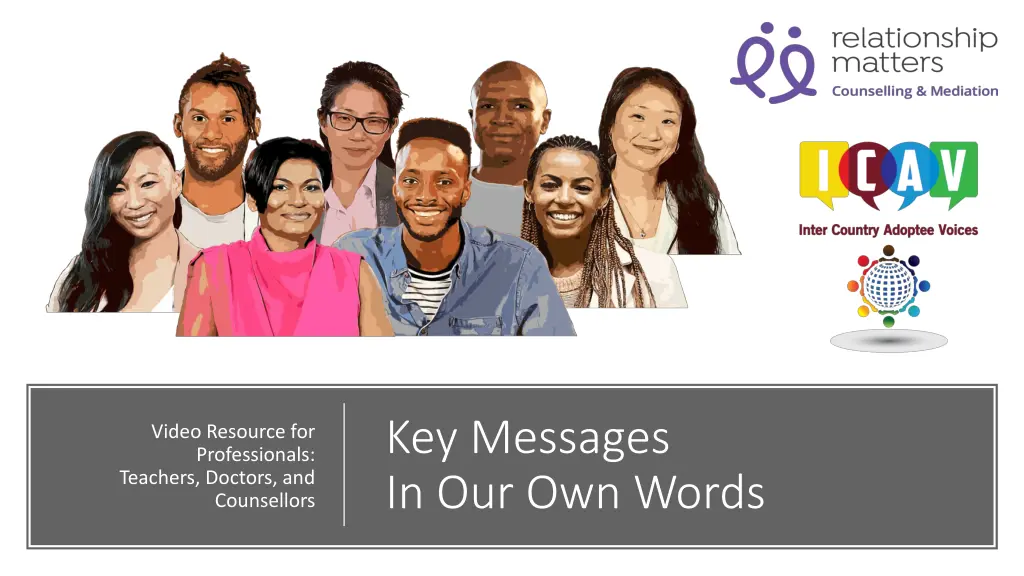
Understand Adoption Trauma and Support for Adoptees
Explore key messages and insights on adoption trauma and support for adoptees from professionals like teachers, doctors, and counselors. Learn about the complexities adoptees face, the need for trauma-informed care, and strategies for creating safe spaces and offering appropriate support.
Download Presentation

Please find below an Image/Link to download the presentation.
The content on the website is provided AS IS for your information and personal use only. It may not be sold, licensed, or shared on other websites without obtaining consent from the author. If you encounter any issues during the download, it is possible that the publisher has removed the file from their server.
You are allowed to download the files provided on this website for personal or commercial use, subject to the condition that they are used lawfully. All files are the property of their respective owners.
The content on the website is provided AS IS for your information and personal use only. It may not be sold, licensed, or shared on other websites without obtaining consent from the author.
E N D
Presentation Transcript
Key Messages In Our Own Words Video Resource for Professionals: Teachers, Doctors, and Counsellors
We are not all orphans We often have family that we are separated from for various reasons We think deeply about our origins These remain a significant part of our lives Being adopted has a significant and complex impact on us Being told we should be grateful or lucky is insensitive Our life after adoption is different not better The desire to search varies throughout our life Search and reunion is complex Adoptees need support at various stages of our life Rethinking Adoption: In Our Own Words
Our Thoughts for Professionals Adoptees need trauma informed support We face lifelong core issues of grief and loss We need a safe space to process these losses Stages in life can trigger the original traumas Rarely will we identify relinquishment / adoption as our problem Do not ignore signs of abuse and neglect It happens within adoptive families too Refer to adoption and trauma related resources, especially those created by adoptees
Understand adoption trauma and how it manifests Adoptees have additional challenges that impact their ability to participate Notice and respond to racism and bullying Offer a safe space Our Thoughts for Teachers Understand the cultural, racial, language barriers an adoptee can face Develop a transition and support plan People of colour are important racial mirrors for adoptees of colour Modify class activities and language to be sensitive to an adoptee s experience
Our Thoughts for Doctors The medical intake form needs to include a box to identify as an adoptee Adoptees have different needs to non adopted people Not knowing our medical history is another loss Doctors can help us understand genetic testing options We can often present with anxiety, depression, low self esteem, eating disorders, self harm Our physical symptoms are often connected to our traumas Not all adoptees are aware of this We are best supported by trauma informed mental health professionals and peer support spaces Some adoptees experience cultural customs and practices that leave us feeling embarrassed to seek help Be aware of racial and cultural differences and the medical issues that exist for non-white adoptees
Our Thoughts for Counsellors Acknowledge the trauma and loss involved in adoption It is important to help us explore our lost origins, race, culture, history It s often a lifelong process to integrate our past with the present Establish trust by listening It helps us feel safe and validated Learn from a wide range of adoptee lived experience Help us find people of colour who can support us to explore our racial and cultural identities Help us learn about non-white cultures, racial identity and how to deal with racism Help us connect with peer support which reduces feelings of isolation
This Project has been Funded by Supported by The Australian Government of Social Services

